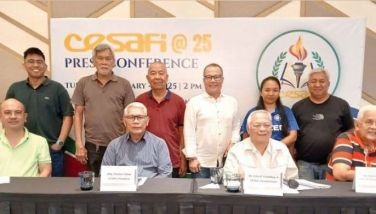Unli

After months of suspense, the National Telecommunications Commission (NTC) cleared the way for the PLDT-Digitel merger. The resolution of the issue apparently pleased all parties.
The market clearly welcomed the NTC decision. In the wake of the announcement, PLDT shares rose by P58 or 2.48 percent. Digitel shares likewise advanced. Even rival Globe’s shares gained, indicating that the NTC resolution was not only favorable to PLDT and to consumers, it was favorable to other players in the telecommunications sector as well.
It took months for the NTC to consider the PLDT-Digitel merger because of several economic and technical issues raised by the deal. There was apprehension that the merger will give PLDT such a dominant place in the telecoms sector that the giant could begin behaving like a monopoly, harming consumer interests.
In particular, subscribers to Digitel’s Sun service feared the cheaper “unli” (unlimited text and calls) packages could be cancelled. Those packages were introduced by Sun to win market share from the two dominant players.
Consumers likewise feared that the merger, which gives PLDT two-thirds of the market as well as ample bandwidth to further expand its capacity, might discourage new players from entering the market and bringing down service costs.
The NTC addressed all these concerns by attaching conditions to its approval of the PLDT-Digitel merger.
To ensure protection of consumers, NTC asked PLDT to retain the unlimited service packages offered by Sun. Using the merger as an opportune event, the NTC lowered interconnection charges to less than half of the prevailing rates. In due time, this should reflect in the prevailing charges for text and voice.
In addition, the NTC required PLDT to divest itself of 10mhz of 3G radio frequency. This will happen through the sale of all of PLDT’s interests and rights in Connectivity Unlimited Resource Enterprise (CURE), the outfit that operates PLDT’s Red Mobile.
Over the next few months, Red Mobile’s subscriber base, brand and fixed assets will be absorbed by Smart Communications. After this is completed, the congressional franchise, radio frequency and related permits to operate will be returned to NTC. The telecoms regulator will then offer the 10mhz of bandwidth to a public bidding.
Under the terms laid down by the NTC, PLDT will inhibit itself from the forthcoming bidding of the radio frequency. The available frequency might be procured by a new player in the telecoms industry. That, in turn, will encourage more competition in the industry.
Even as it gives up the 10mhz, PLDT will still have a total of 25Mhz under its control. This includes Smart’s 15mhz and Sun’s 10mhz. The Ayala-controlled Globe has 10mhz. Over the years, however, Smart has proven itself to be the more efficient user of frequency capacity. As technologies in this sector improve further, PLDT will not need the 10mhz it was asked to give up.
Over and above the conditions the NTC imposed in exchange for approval of the PLDT-Digitel deal, the regulatory body is pushing hard for the interconnection of PLDT and Globe landlines in more provinces over the next few months. When this is done, the long-distance charges for provincial calls will disappear. This should make consumers even happier.
The Senate committee on public services chaired by Sen. Bong Revilla praised the NTC resolution of the merger case as “commendable.” It found the exact formula for protecting consumers and ensuring competition in an industry that, in the last analysis, should rely on volume over margin in creating profit for itself.
Abolish
Rep. Rufus Rodriguez is turning out to be a boldly imaginative legislator.
Recently, the Cagayan de Oro congressman co-authored HB 2867. The draft legislation will cause the abolition of about a fourth of all existing GOCCs and GFIs. These public enterprises, according to the bill, are “unnecessary, underperforming or losing.”
This is yet another bill that the administration might consider classifying as urgent. The most recent COA report states that underperforming GOCCs failed to remit to national government some P59.611 billion in net income share due since 2008. That amount might help reduce the chronic budget deficit that pushed us into debt.
Too, many of the most redundant public enterprises rely heavily on government subsidies since they incur chronic operational losses. A major portion of our total outstanding national debt, it must be noted, was incurred financing losing GOCCs. Today, the biggest loser and most indebted GOCC is the NFA. It used to be the Napocor.
Among the “unnecessary, underperforming or losing” GOCCs targeted by the Rodriguez bill is the Partido Development Administration (PDA). This unique GOCC, equipped with extraordinary corporate powers, including regulation of natural resource extraction that normally belong to national government agencies, was organized to induce growth and development in only one congressional district of Camarines Sur. That district is known in the locality as the Partido area, covering ten of the poorest municipalities in the country.
As of last count, the PDA absorbed over P100 million in losses over the period 2008-2009 alone, because of payables amounting to P585.5 million, representing initial loan amortizations and guarantees the national government had to advance because of PDA’s inability to cover its own obligations.
Among the PDA’s obligations is a mixed dollar- and euro-denominated credit facility incurred to bankroll improvement of the Partido Water Supply System. Today, this system sells the most expensive water in all of the Bicol region, adding to the poverty that grinds its communities.
With its bad management and all, the PDA is the poster boy for all the GOCCs that need to be abolished now.
- Latest
- Trending

























